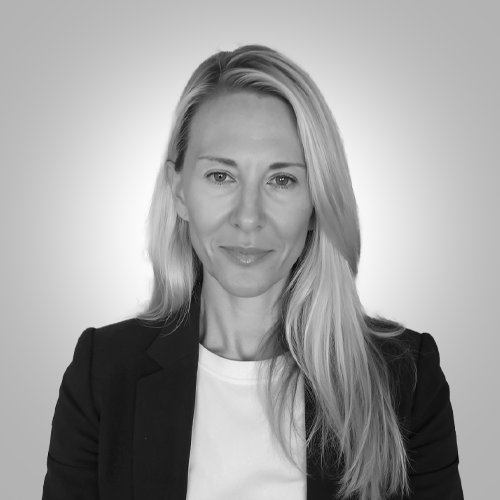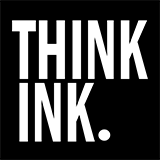The Clock is Ticking on Sustainability: Why Messaging Matters More Than Ever
May 08, 2025 / By Vanessa Horwell
4 Min Read
It won’t matter if your product can stop climate change—if your messaging doesn’t land, no one will care.
Every new industry has a critical window of opportunity. It comes when the interplay of technology, interest, and capital peaks. These are formative times for a young industry, when its own version of frontrunners like Microsoft, Amazon or Google are born.
Then, as markets mature, this opportunity window narrows, and it becomes more challenging for new entrants to break through. Mauricio Prieto, co-founder of eDreams, recently highlighted this dynamic in his newsletter. He noted that within every major window, there are sub-windows that follow the same arc: opening fast, gaining momentum and then closing as competition intensifies and control consolidates.
In our recent analysis of 160 sustainability companies—including carbon capture firms, sustainability accounting platforms, certification bodies and waste management enterprises—we found that the sustainability industry as a whole shows signs of slowing down, with falling climate-tech VC deals, weakened clean energy policies and a sea of sameness in terms of competition. In this survey, we examined the critical errors in the sustainability marketing strategy hindering their success. Spoiler alert: They were missing everything that mattered.
Now, we're pinpointing two specific business models (or Prieto’s “sub-windows”) where we see opportunity slipping away: carbon capture and sustainability software.
How to win in a closing window of opportunity
To start, it’s worth asking: What makes the winners win? And how can you defy the odds when the clock is ticking?
When the window is wide open, companies in that industry are dynamic and growing fast. They come into conflict with each other, which leads to the dominance of some companies over others in the market. The most striking aspect of this is that in most (but not all) cases, these winners and losers have nearly identical products. The difference is not the product being sold, but how it is marketed.
In our 21 years of developing B2B marketing and PR programs for technology companies, we've seen this play out in sectors like travel, loyalty and retail. We've noticed that the companies that win share a key ingredient in their success: they speak the customer’s language. That means understanding buyer priorities, aligning with their challenges and building marketing strategies that resonate within their industry.
Ultimately, no matter how strong the product is, if the message doesn’t land, it doesn’t matter. This imperative is magnified when the window of opportunity is closing.
Carbon capture companies: The need for client-focused messaging
Speaking to your audience in their language isn't always easy, especially if you’re in a scientific industry like sustainability, where there may be a chasm of comprehension between the potential customers and sellers. Translating your value into terms the buyer understands is an art—and it’s what makes winners stand out.
This messaging gap is especially evident among companies that remove carbon from the atmosphere. In our recent sustainability industry analysis, only 34% of these carbon capture companies listed the benefits of the product for their customers. More troubling was the fact that 10% did not even mention that they had a product for sale.
This was significant not only for the lack of client-focused language the buyer might understand, but also because these companies are failing to showcase what makes their product necessary, let alone better than their competitors. This in turn favors the commoditization of a product that—from a buyer’s perspective—looks like indistinguishable carbon credits and will favor the emergence of intermediaries like aggregators and brokers.
It remains uncertain what impact this might have on the carbon capture market: will the intermediaries be a benevolent force that helps increase the adoption of technology, or will they follow the path of the hotel industry, where they become gatekeepers and charge high fees for market access?
We can’t say for sure, but we can say that carbon capture companies still have time to differentiate their product. To do so, they must adjust their approach and embrace client-focused messaging in their communication strategies.
Carbon software: Standing out in a “zebra market”
At the opposite end of the sustainability spectrum is software, specifically tools for emissions measurement, data collection and regulatory compliance. This is where many companies have followed more traditional B2B marketing playbooks: focusing heavily on their product features (95% of the companies we reviewed) and buyer benefits.
But even with solid messaging, this segment is crowded. As one of our researchers put it, “it feels like looking at a herd of zebras…it’s hard to tell one from the next.” That perceived sameness is often a clear signal of a closing window.
One way to carve out a lead is through specialization. One of our clients, BeCause, recognized early on that its platform could offer distinct value to the travel industry, so the company partnered with us to help refine its messaging and connect with travel brands through industry-specific PR and marketing strategies.
A similar approach could also be adopted in other areas of the sustainability industry, especially in its marketing to high-impact sectors like travel.
The value of specialists in B2B sustainability communications strategy
In a fast-growing industry like sustainability, it’s difficult to know where to focus. You need adaptive strategies as trends shift quickly, and opportunities constantly emerge. But creating sharp focus doesn’t have to mean exclusion.
Our sustainability PR agency is a good example, as we’ve expanded our audience and added specializations over two decades, offering a comprehensive and growing base of B2B strategy, marketing and PR services across the aviation, travel, loyalty retail, payments and sustainability industries. We've long recognized the connectedness of these industries while understanding that each has its own language. We help companies shape coherent messaging and reinforce it through specialist teams and subject matter experts who understand each industry with its unique nuance and needs.
If you're working in sustainability and looking to capture the opportunity in these industries, we can deliver the results you need to help your messaging stand out. After all, a window only stays open for so long, and communication might just be what gets you through it.
Sign up for our insights on the convergence of business and PR









